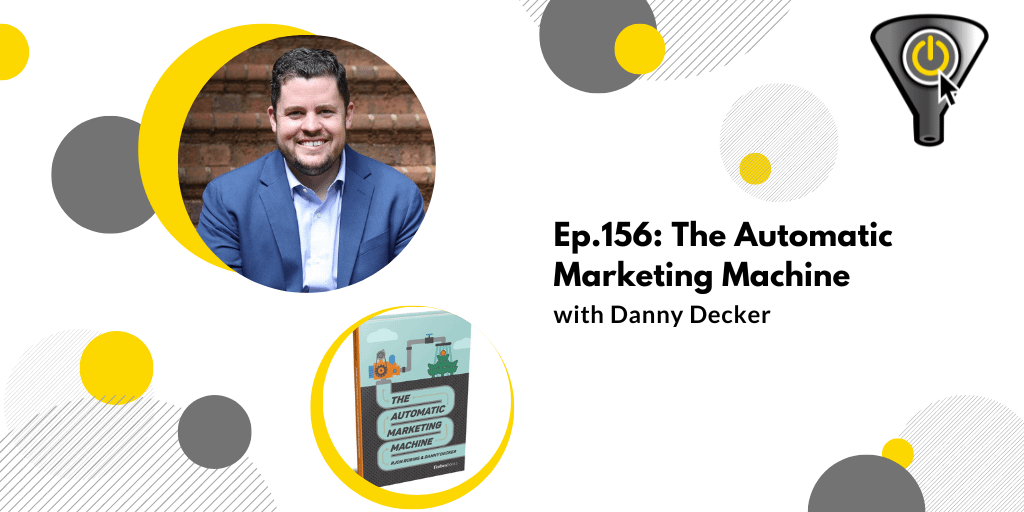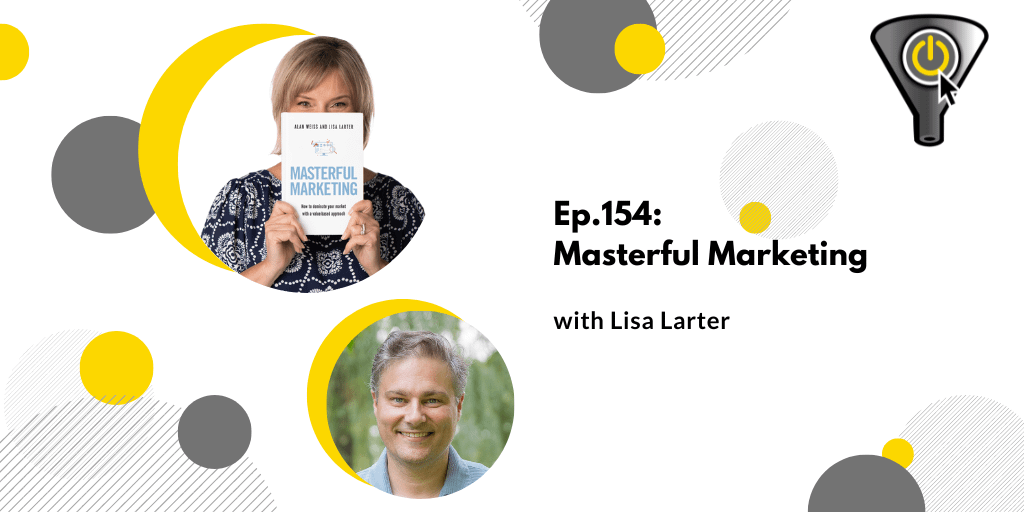In this episode, I spoke with Danny Decker about the book he co-wrote with RJon Robins, “The Automatic Marketing Machine” which came out in 2022. The book combines direct marketing, nurturing emails and retention tactics to form a sustainable supply of ready-to-buy leads.
Danny Decker spent most of his childhood in West Africa, where his parents were missionaries. When he was young, he saw people spending a large portion of their day getting water. In a similar way, businesses struggle to get a steady supply of prospects, even though leads are as important to business owners as water. In their frantic bid to fill their funnel, they commit random acts of marketing, looking to Danny just like the villagers that he once watched use up precious energy, spending much of their time on just subsisting.
He is based in Huntersville, NC with his wife, two kids, and a hyperactive German shepherd. Through the Automatic Marketing Agency, Danny now shows businesses how to secure their prospect-supply by building marketing systems that work to help businesses reach their full potential.
People/Products/Concepts Mentioned in Show
The Automatic Marketing Machine book
Danny on LinkedIn
Danny’s Podcast (2018-2021)
Building a Storybrand book by Donald Miller
Episode Reboot.
The five-step marketing automation email sequence:
- Instant response, delivering the resource that the prospect requested. (This is the email we’ve already reviewed earlier in this chapter.)
- Send two days after the first email, following up to ensure the prospect got the resource, asking if they have any questions, and providing a link to schedule their appointment or visit your store.
- Send three days later, offering another piece of helpful content such as a blog entry or a video. Also include a link to schedule their visit to your location.
- Send three days later, sharing testimonials and success stories designed to help the prospect begin to create a vision for how much better life could look once they purchase your products or services. Include a link to schedule their visit.
- Send three days later, sharing a blog, infographic, article, or video that will be helpful to the prospect. And include a link to schedule their visit.
As a follow up, add the prospect to your main mailing list.









